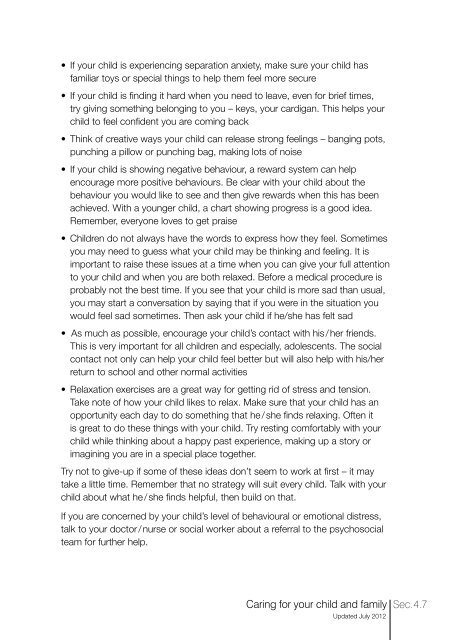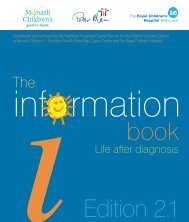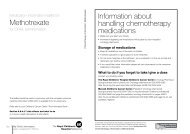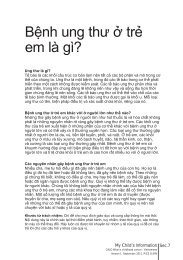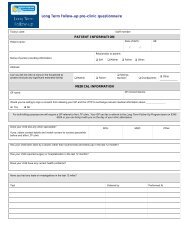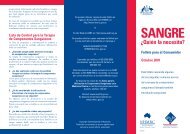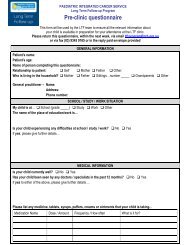The Information Book Edition 3 - Paediatric Integrated Cancer Service
The Information Book Edition 3 - Paediatric Integrated Cancer Service
The Information Book Edition 3 - Paediatric Integrated Cancer Service
- No tags were found...
Create successful ePaper yourself
Turn your PDF publications into a flip-book with our unique Google optimized e-Paper software.
• If your child is experiencing separation anxiety, make sure your child hasfamiliar toys or special things to help them feel more secure• If your child is finding it hard when you need to leave, even for brief times,try giving something belonging to you – keys, your cardigan. This helps yourchild to feel confident you are coming back• Think of creative ways your child can release strong feelings – banging pots,punching a pillow or punching bag, making lots of noise• If your child is showing negative behaviour, a reward system can helpencourage more positive behaviours. Be clear with your child about thebehaviour you would like to see and then give rewards when this has beenachieved. With a younger child, a chart showing progress is a good idea.Remember, everyone loves to get praise• Children do not always have the words to express how they feel. Sometimesyou may need to guess what your child may be thinking and feeling. It isimportant to raise these issues at a time when you can give your full attentionto your child and when you are both relaxed. Before a medical procedure isprobably not the best time. If you see that your child is more sad than usual,you may start a conversation by saying that if you were in the situation youwould feel sad sometimes. <strong>The</strong>n ask your child if he/she has felt sad• As much as possible, encourage your child’s contact with his / her friends.This is very important for all children and especially, adolescents. <strong>The</strong> socialcontact not only can help your child feel better but will also help with his/herreturn to school and other normal activities• Relaxation exercises are a great way for getting rid of stress and tension.Take note of how your child likes to relax. Make sure that your child has anopportunity each day to do something that he / she finds relaxing. Often itis great to do these things with your child. Try resting comfortably with yourchild while thinking about a happy past experience, making up a story orimagining you are in a special place together.Try not to give-up if some of these ideas don’t seem to work at first – it maytake a little time. Remember that no strategy will suit every child. Talk with yourchild about what he / she finds helpful, then build on that.If you are concerned by your child’s level of behavioural or emotional distress,talk to your doctor / nurse or social worker about a referral to the psychosocialteam for further help.Caring for your child and family Sec.4.7Updated July 2012


